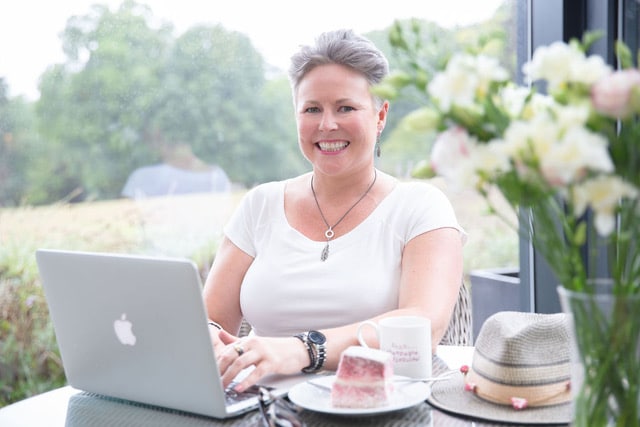26 November 2013. The day my husband passed away from a brain tumour, aged 42.
20 March 2018. The day I was diagnosed with breast cancer.
17 April 2018. The day I was told it was actually stage 4 metastatic breast cancer.
In a way I was lucky – I married my husband knowing he had cancer. I didn’t have to deal with the emotional impact and upheaval an initial cancer diagnosis has on your life. When I met Matt in 2002, his cancer was in remission and it seemed the world was his oyster. Sadly, around the end of 2010, his health started to deteriorate. By 2012, he was no longer able to work so the news his tumour was growing again didn’t come as a shock, but life did undergo some serious readjusting.
As a partner, I felt helpless. There’s nothing harder than watching a loved one suffer and feeling incapable of making it better. You wish you could take the pain and suffering away. You wish you knew how much time you had. You wish you could predict when the good days would be to make sure you made the most of them. However, the reality of life makes it complicated. There’s a constant struggle to balance caring for someone, which is emotionally and physically exhausting, and sustaining a “normal” life.
As a carer, normal life pretty quickly takes a back seat as your time is taken up with caring for a strong willed adult and managing hospital appointments. The transition from wife to carer was one I struggled with as I felt the dynamic in our relationship change. In a way, you could say I started the grieving process during this time, trying to protect myself from the pain that would come from the Matt-sized hole that was inevitable. Juggling life as it was with what it would be in the future is a major head f***.
I used work as an escape. It was my “me time” but I would end up feeling more guilt for leaving Matt alone. Caring takes incredible strength and it’s difficult to remember to take care of yourself but it’s so important. If you burn out, you’re no good to the person you’re caring for. While I don’t think I mastered it myself, I can’t emphasise it enough to friends and family I see going through the same process.
As a carer, I wanted to help make Matt’s life as simple, painless and enjoyable as possible. I would see Matt struggle to do up a button, put the dog’s leash on or make a cup of tea, so I’d jump in and do it for him. However, little did I realise that by helping Matt, I was taking away his independence. I totally get Matt’s frustration with me now. The more you “help”, the more the person feels like a patient or victim rather than someone who happens to have cancer.
Along with the loss of independence is the feeling of a loss of control. You can’t control cancer or when your treatments are but you like to think you can control what you do out of the hospital. As much as you plan events so you have something to look forward to, there’s always the uncertainty of whether or not you’ll be able to participate until the actual day. The disappointment, sense of missing out (alongside the financial frustrations of not being able to take part in something you’ve paid for) can be overwhelming and frequently reduce you to tears.
I’m yet to find a solution to this and have grown to accept this is another thing that can’t be controlled. However it has helped me to be surrounded by friends and family who understand this and don’t make me feel guilty for bailing or changing plans at the last minute.
My greatest fear has always been loneliness. I used to think Matt would feel abandoned and lonely when I went off to work. However, having recently been inducted into the cancer club, I now understand that actually it’s nice to have space and time to yourself. Being alone is different to being lonely. You don’t feel lonely if your friends and family form a cocoon of support around you.
Time alone also gives you time to sleep, which is incredibly healing and heavenly when it’s a guilt free afternoon nap.
Matt was given 14 months to live in 1998, but there was no way that cancer was going to limit what he could or couldn’t do. His attitude, the stubbornness and fearless determination helped me help him through his diagnosis and is now inspiring me through my own cancer journey. When I was told I had breast cancer, I had a weird sense of calm. Matt hadn’t feared his chemo treatments – he had seen them as a necessary evil and if he could do it, then I could too. I must admit being told the breast cancer was metastatic and life limiting was a reality check but, like Matt, I decided to see it as a gift, to really appreciate my time with friends and family and grab life by the horns and plan the heck out of it! Who knows, I may have another 14 years like Matt did!
